Central America
Panama seeks $20 million loan from the World Bank

Panamanian Minister of Health, Rosario Turner reported that a $20 million loan is being negotiated with the World Bank to purchase supplies and tackle the COVID-19 emergency.
The Minister said, “The request is to acquire all the necessary resources in terms of medicines and supplies, so we may continue the fight in the coming months.”
At the same time, Turner justified the loan by saying that the COVID-19 problem is not only unique to Panama, but a global problem.
Central America
Honduras reports four influenza deaths and 587 cases in 2025 amid COVID-19 rise
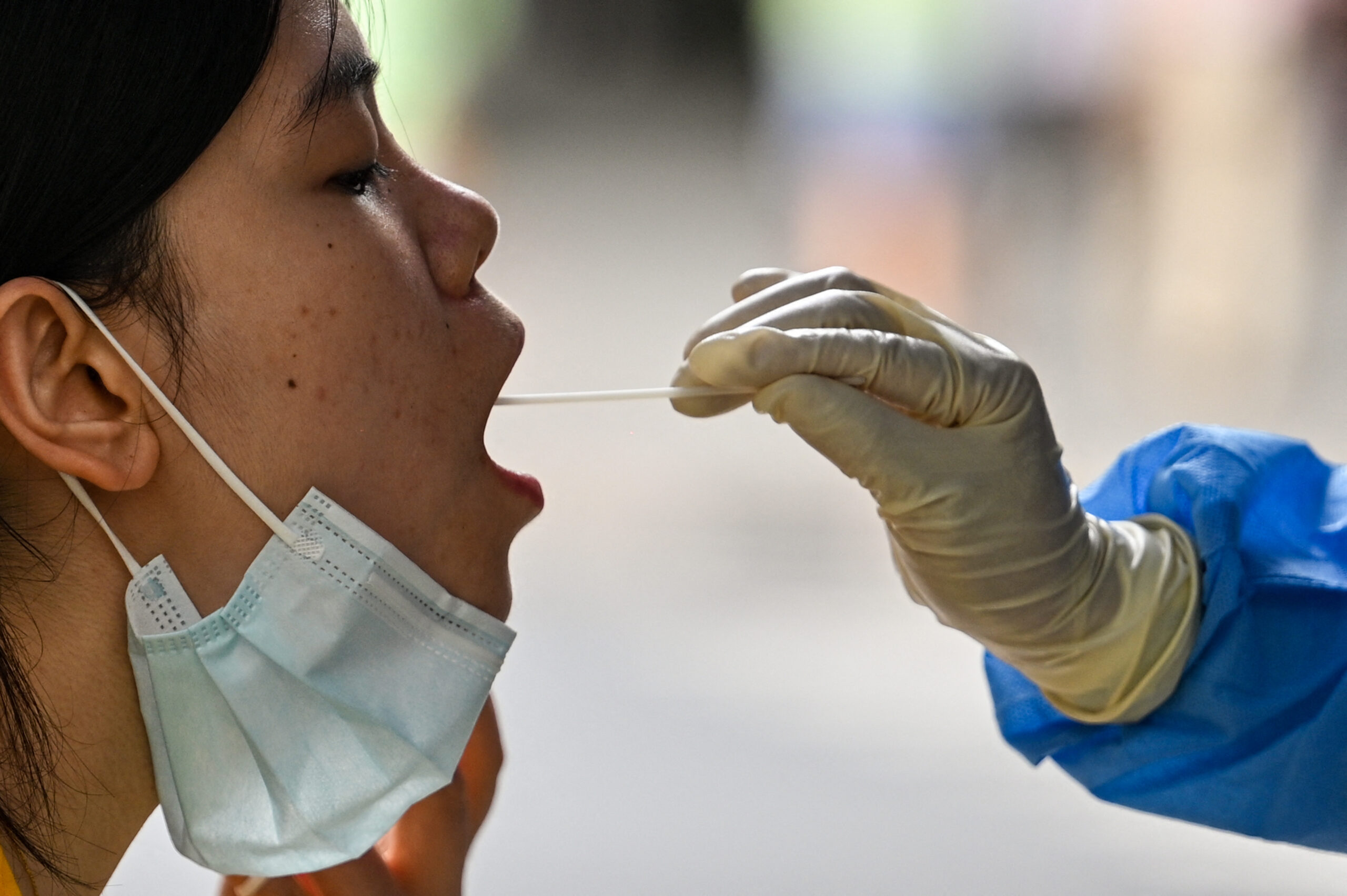
Honduran health authorities confirmed on Monday four deaths caused by the influenza virus, which has affected 587 people so far in 2025. During this period, two deaths due to COVID-19 have also been reported.
Lorenzo Pavón, head of the Surveillance Unit of the Ministry of Health, stated that the individuals who died from influenza were over 50 years old and passed away due to complications related to chronic diseases such as diabetes, hypertension, and kidney failure.
The deaths occurred in the departments of El Paraíso (east), Ocotepeque (west), and in the cities of Siguatepeque and Comayagua, located in the central region of the country, Pavón detailed without providing further case specifics.
Official data shows that so far this year, 571 infections of the influenza A H1N1 virus and 16 cases of influenza B have been confirmed.
Among the total influenza A infections, 302 were women and 268 men, with the population between 15 and 49 years being the most affected, with 167 cases recorded, Pavón detailed.
Health authorities warned that vaccination remains the primary tool to prevent complications caused by the virus, against which antibiotics are ineffective.
They also recommended the population, especially vulnerable groups, to get the influenza vaccine, avoid self-medication, and seek medical attention if symptoms appear.
Meanwhile, Pavón indicated that the country has also reported two COVID-19 deaths and 261 confirmed cases, with 107 men and 154 women affected, women being the majority.
The age groups with the highest incidence of COVID-19 are adults between 20 and 29 years, with 54 cases, and children aged 0 to 9, with 47 infections.
In light of the rise in COVID-19 cases, health authorities recommended strengthening biosecurity measures such as frequent hand washing, wearing masks in enclosed or poorly ventilated spaces, and using hand sanitizer.
Central America
U.S. revokes visas of top Costa Rican lawmakers and constitutional judge
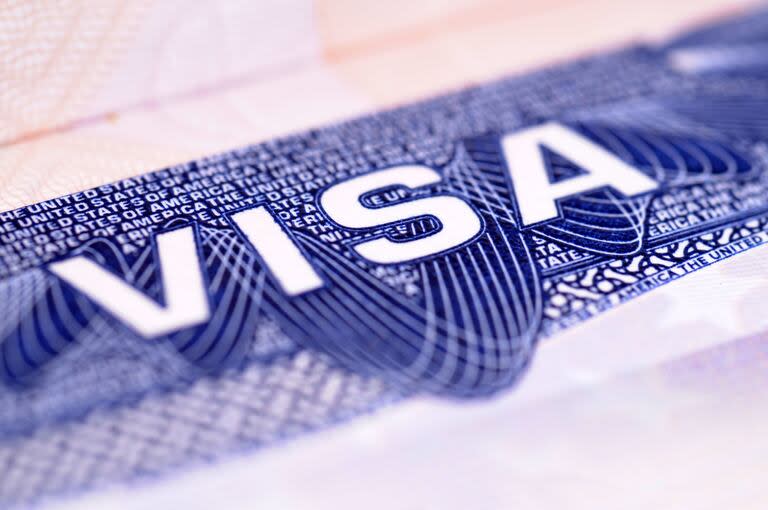
The United States government has revoked the visas of Rodrigo Arias, president of Costa Rica’s Legislative Assembly, and Paul Rueda, a justice of the Constitutional Chamber, expanding the list of Costa Rican officials affected by such measures in 2025.
The Constitutional Chamber confirmed the cancellation of Justice Rueda’s visa but stated it would not issue further comments. Meanwhile, local media reported the case of Rodrigo Arias, who has led the Assembly for the past three years and maintained a critical stance toward President Rodrigo Chaves’s administration.
Visa revocations against Costa Rican political figures began following a visit by U.S. Secretary of State Marco Rubio to San José in February. During the trip, Rubio warned of potential sanctions against those collaborating with foreign actors that could pose a risk to U.S. cybersecurity.
While in Costa Rica, Rubio praised President Chaves for halting Chinese companies’ involvement in major tech infrastructure projects, including the development of 5G networks.
Since then, the U.S. has also revoked visas of lawmakers Francisco Nicolás (National Liberation Party), Johana Obando and Cynthia Córdoba (Progressive Liberal Party), as well as Ana Sofía Machuca, general auditor of the Costa Rican Electricity Institute. All were accused of allegedly favoring Chinese firm Huawei in 5G-related tenders—criticism led by President Chaves and members of his cabinet.
In April, even former president and Nobel Peace Prize laureate Óscar Arias, brother of Rodrigo Arias, had his visa revoked. Arias has publicly criticized the U.S. over its military spending and, more recently, the immigration and trade policies of President Donald Trump.
As with previous cases, the U.S. government has not disclosed the specific reasons behind the visa revocations.
Central America
Guatemala hit by over 300 quakes; death toll rises to seven
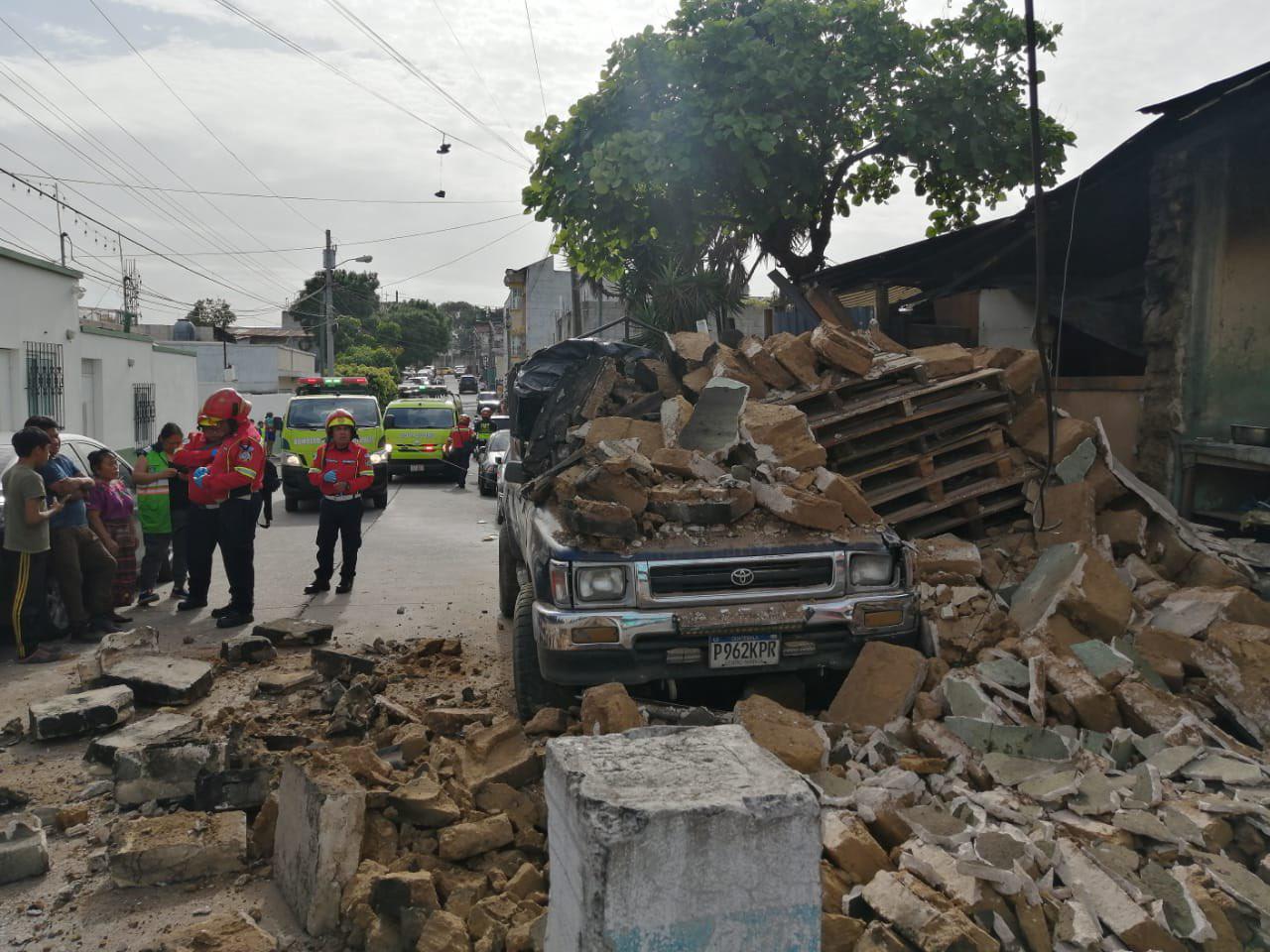
At least seven people have died as a result of a series of earthquakes that have shaken three departments in central Guatemala since Tuesday, according to the National Coordinator for Disaster Reduction (Conred).
In its latest update, Conred reported that 2,138 people have been affected, and 347 have been displaced and are receiving humanitarian assistance.
“Our deepest condolences to the families. There are no words at a time like this, but know that the pain you feel is the pain of the entire Guatemalan people,” said President Bernardo Arévalo, expressing solidarity with the families of the victims. Of the seven deceased, five have been identified, while two remain unidentified as the National Institute of Forensic Sciences (Inacif) continues its work.
To address the emergency, the government has opened nine shelters, currently housing 586 people affected by the tremors.
Since the start of seismic activity, the National Institute for Seismology, Volcanology, Meteorology and Hydrology (Insivumeh) has recorded 340 earthquakes, including 32 in the last few hours, with magnitudes ranging between 1.2 and 5.6.
One of the most severely impacted areas is the Santa María bridge, located at kilometer 39+100 on the road to Palín, Escuintla. Authorities have begun coordinating its repair.
A total of 28 road segments have sustained damage: 11 in Sacatepéquez, 7 in Guatemala, 6 in Chimaltenango, and 4 in Escuintla.
Conred has urged the population to drive cautiously, avoid speeding, take extra care in mountainous areas or on roads with a history of structural issues, and report any emergencies to the 24-hour hotline 119.
-

 International4 days ago
International4 days agoSheinbaum slams ICE raids after 355 mexicans detained and 67,000 repatriated
-

 International3 days ago
International3 days agoTwo missing after torrential rains cause flooding in Catalonia
-

 International4 days ago
International4 days agoTrump defends Bolsonaro, hints at talks with Brazil after tariff warning
-
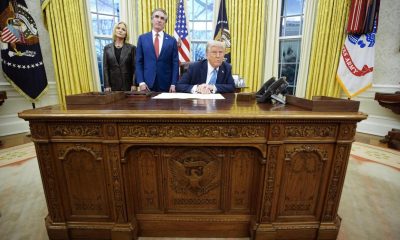
 International4 days ago
International4 days agoTrump administration begins downsizing ‘bloated’ state department workforce
-
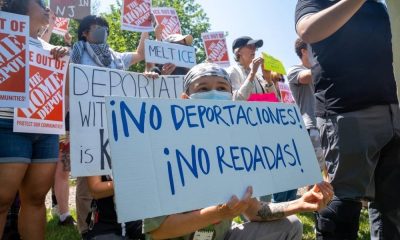
 International2 days ago
International2 days agoMexico confirms death of farmworker hurt in ICE raid, calls for investigation
-
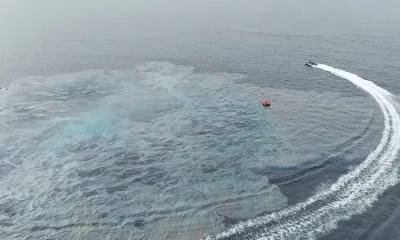
 International1 day ago
International1 day agoThe rescue operation of missing people ends after a ship was wrecked by a Houthi attack in the Red Sea
-

 International2 days ago
International2 days agoTrump’s 30% tariff undermines U.S.-Mexico talks, but negotiations will continue
-

 International1 day ago
International1 day agoPatriot missiles, key anti-missile systems for the defense of the Ukrainian sky
-
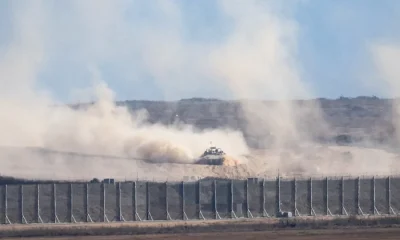
 International1 day ago
International1 day agoIsrael kills at least 20 Palestinians in attacks from dawn against the Gaza Strip
-
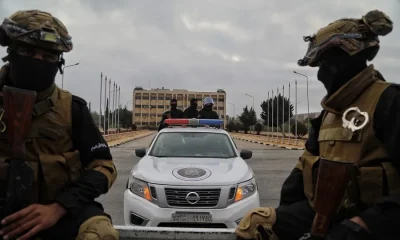
 International1 day ago
International1 day agoDeaths from clashes between military groups and clans in southern Syria rise to 30
-
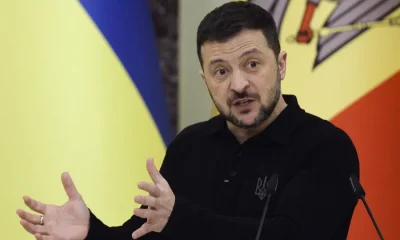
 International24 hours ago
International24 hours agoZelenski proposes the Minister of Economy, Sviridenko, as the new prime minister
-

 International1 day ago
International1 day agoAnti-mafia operation in Italy with 54 arrested for drug trafficking from Ecuador and Spain
-

 International1 day ago
International1 day agoZelenski talks to Kellogg in Kiev about sanctions against Russia and the sale of weapons to Ukraine
-
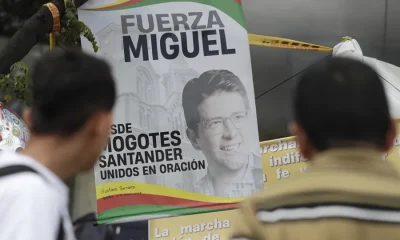
 International24 hours ago
International24 hours agoColombian Senator Uribe Turbay, shows clinical improvement and begins neurological rehabilitation
-
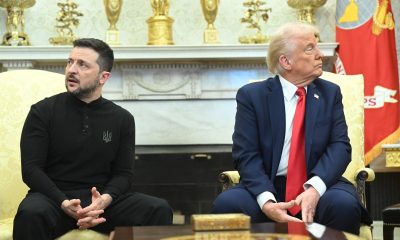
 International18 mins ago
International18 mins agoTrump gives Russia 50 days to end war in Ukraine
-
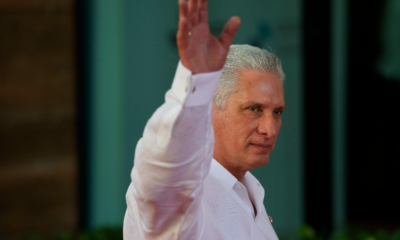
 International3 days ago
International3 days agoU.S. sanctions cuban president Díaz-Canel over regime crackdown on protesters
-
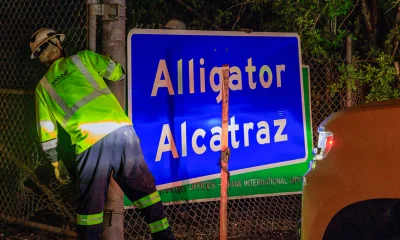
 Internacionales11 mins ago
Internacionales11 mins agoU.S. plans five new ‘Alligator Alcatraz’-style migrant detention centers
-
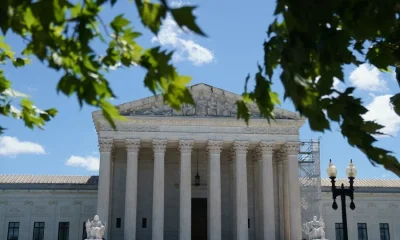
 International9 mins ago
International9 mins agoSupreme Court allows Trump to proceed with massive layoffs at Education Department
-
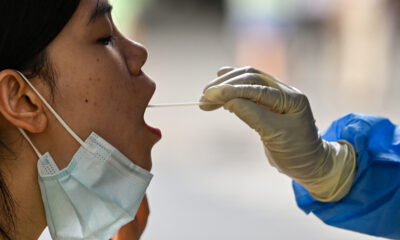
 Central America4 mins ago
Central America4 mins agoHonduras reports four influenza deaths and 587 cases in 2025 amid COVID-19 rise
-

 International5 hours ago
International5 hours agoThe US Supreme Court gives the green light to Trump to dismantle the Department of Education






















